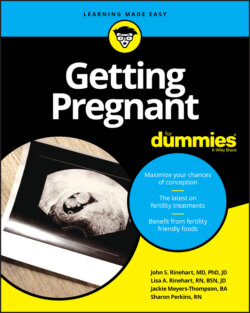Читать книгу Getting Pregnant For Dummies - Sharon Perkins - Страница 80
I’ll drink to that!
ОглавлениеA recently published article (Lyhgso, et al. Human Reproduction [2019] 34:1334) addressed the issue of mild to moderate alcohol consumption and infertility. The study asked the question: “Does female weekly alcohol intake and binge drinking impact the chance of a successful infertility treatment?” The study gathered information about the alcohol consumption of 1,708 women and their partners undergoing fertility treatment. The outcome was the achievement of a clinical pregnancy and live birth. The study found “low to moderate average weekly alcohol intake was not statistically significantly associated with the chance of achieving a clinical pregnancy or a live birth.” The study divided that amount of alcohol consumed per week into none, 1–2 (alcoholic drinks), 3–7, and > 7 drinks. The chance for conception and live birth using either IUI or IVF was the same for all groups. The conclusion from the authors was that the results of their study suggest that it is not necessary to abstain from drinking alcohol when undergoing fertility treatments.
Putting this into perspective, once pregnant, there is ample evidence that heavy alcohol consumption can harm the developing pregnancy. So, the advice to abstain from heavy alcohol consumption while pregnant is appropriate. The American College of Obstetricians and Gynecologists (ACOG) guidelines state that all alcohol types are harmful to an established pregnancy even potentially in the early weeks of pregnancy.
While all of the preceding information is fascinating, how does it help people trying to conceive? The most important lesson is that total abstinence while in treatment for infertility is unnecessary. There is no harm in having an occasional drink while undergoing infertility treatments. However, once there is a possibility of being pregnant, alcohol consumption should be avoided.
